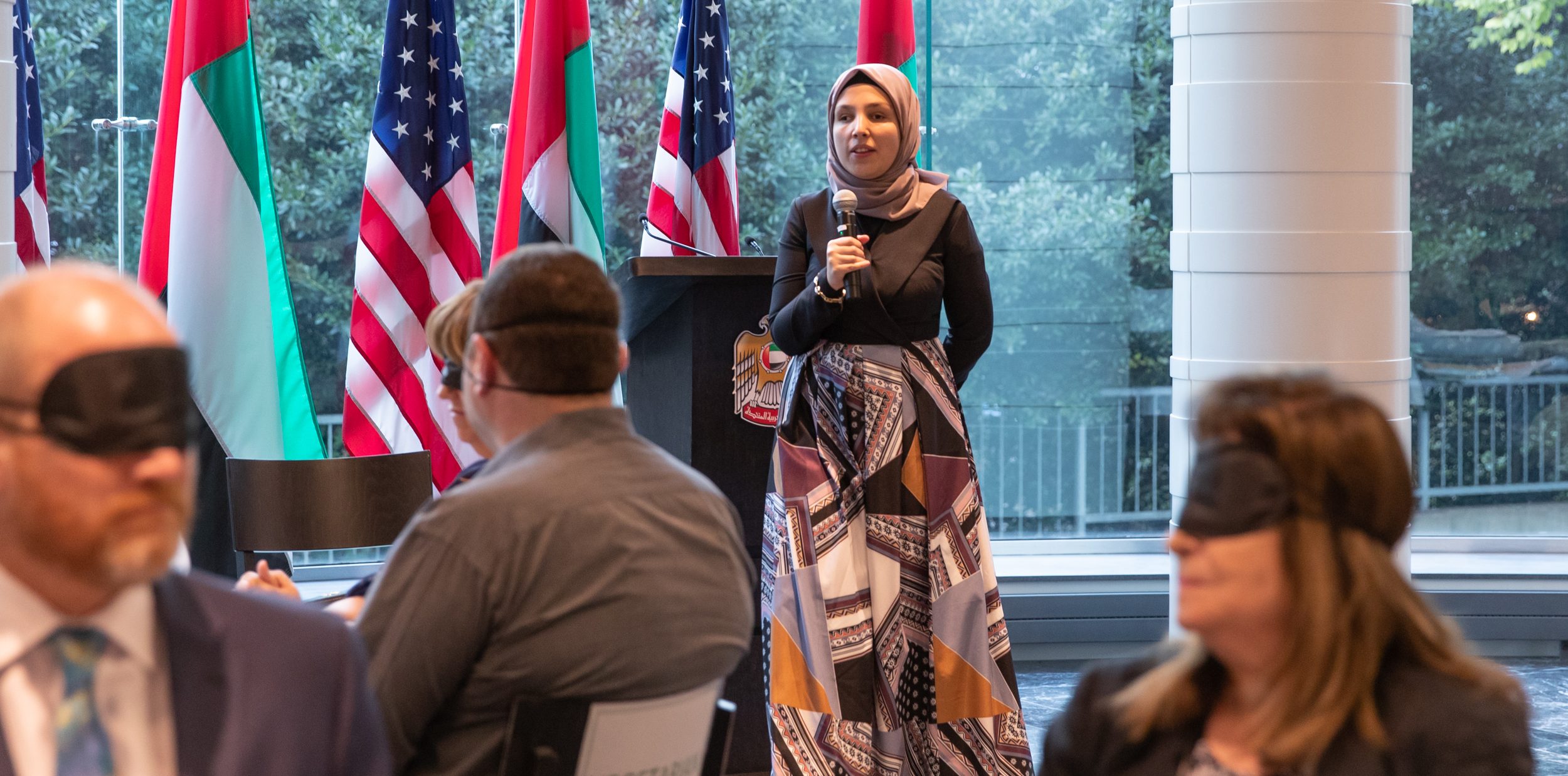A premier experience that helps organizations connect, collaborate, and create
The Challenge
Organizations need agility and creativity, yet are met with:
Lorem ipsum dolor sit amet, consectetur adipiscing elit. Ut elit tellus, luctus nec ullamcorper mattis, pulvinar dapibus leo.
Growing Disengagement
Teams disconnect from mission and each other
Low Productivity
Energy drains while outputs stagnate
Lack of Innovation
Safe thinking replaces breakthrough ideas
High Turnover
Top talent quietly exits for better cultures
When trust is replaced by anxiety and AI-driven isolation, your people stop taking risks and start finding new jobs. Disengaged teams don’t innovate; they survive.
The world has never been more interconnected in real time and our human connections have never been more fragile AI is rushing in to fill the gaps, creating anxiety and confusion among workforces. The trust falls, icebreakers and corporate personality tests aren’t working anymore. The leadership off-sites, board retreats, and summits have largely become perfunctory exercises. Meanwhile, people who are disconnected and disenchanted cannot solve the hardest problems we face today.
This moment demands something deeper to re-energize and reconnect people on a human level because when everyone feels empowered to show up as their authentic selves communication is clearer, problems are resolved earlier and creative solutions emerge faster.

The Solution
In the Dark
How It Works
Constraint removes noise and hierarchy
Participants are blindfolded and guided by intentional rules that eliminate visual bias, titles, and habitual power dynamics, allowing people to engage beyond role and status.
Shared uncertainty and discomfort changes behavior
When familiar cues disappear, people listen more carefully, speak with greater intention, and engage more authentically with one another.
Facilitated experience drives insight
Sessions are tailored to your organization’s goals, enabling teams to connect, think, and collaborate in ways that traditional meetings and workshops cannot.
The Solution
Why Leaders Invest in This
Engagement increases
When people feel heard and establish trust. Removing hierarchy creates space for ideas, perspectives, and concerns that often stay hidden, especially from overlooked voices.
Collaboration improves
Across silos and roles. Teams communicate more effectively and build relationships faster when they connect beyond assumptions.
Innovation benefits
From psychological safety. When people are comfortable navigating uncertainty and difficult conversations, creativity and problem-solving expand.
Applications
Organizations use In the Dark to:
Increase employee engagement and retention
Improve collaboration and cross-functional alignment
Unlock underutilized talent, insight, and productivity
Enable more candid conversations and better decision-making
Strengthen leadership presence, listening, and adaptability
Applications
Organizations use In the Dark to:
Impact
Why It's Worth It
In the Dark creates the conditions where people bring more of themselves, more ideas, more authenticity, more ownership, into their work. For leaders, that translates into stronger teams, better outcomes, and organizations that are more resilient, adaptive, and innovative.
That is precisely why Sara Minkara created her In the Dark a one-of-a-kind blindfolded experience that helps unlock authentic leadership, deepen trust, and spark innovation.
Importantly, In the Dark is not a simulation of blindness. Participants’ sight – and other overly relied-upon verbal cues and frameworks – are removed in order to free them to tap into their most honest, unvarnished perspectives. They are given the freedom to simply consider the problem or question itself, rather than getting bogged down with who they’re speaking to, and how they’re being perceived.
The subsequent experience has helped transform leadership teams, shift culture, and unlock new solutions across multiple Fortune 500 companies and international organizations. Organizations and leaders who have experienced it have reported significant improvements in communication, team cohesion, and problem-solving abilities.
If your organization is navigating complexity, transition, or stalled momentum...
In the Dark removes the systemic barriers to progress
Some of the organizations who have benefited from In the Dark and Sara's speaking engagements:







Behind the Methodology
The Origin Story
Why Sara Created In the Dark
Sara created In the Dark when she realized how much our perceptions and assumptions of others interfere with how we show up, interact, and work with one another. Most of those perceptions are based on visual cues and labels to which we attach value, like job title and education.
As a blind woman, Sara did not experience many of those barriers to authentic connection. She often meets people and approaches them with a clean slate, little to no assumptions about who they are and what value they bring. In these interactions, she is able to connect, relate, and ideate with anyone.
In the Dark brings this same clarity to everyone, creating space for genuine human connection and collaboration.
The Signature In the Dark Experience:
For forging new bonds and reconnecting long-time teams and collaborators.
- Team Offsites & Retreats
Orientation Program
Onboarding Sessions
Fellowship & Leadership Program Kickoffs
Networking Events
Create authentic connections
Build trust among changemakers—beyond titles and credentials
Foster meaningful networking that opens doors to unlikely partnerships
Give participants a memorable shared experience that sparks ongoing conversation
The Custom In the Dark Experience:
Designed to address your specific needs and challenges.
- Board Retreats
- Strategic Planning
- Manager Trainings
- Communications Training
- Journey Mapping for Products or Customers
- Surface true perspectives and unspoken tensions
- Identify gaps in thinking, service, and access
- Foster difficult conversations and break down silos
- Enable deeper innovation grounded in lived experience
The Comprehensive In the Dark Experience:
A series of custom engagements designed to change culture, solve deeply rooted problems, and produce organization-wide change that lasts.
- Brand-aligned multi-session journeys
- Cultural transformation initiatives
- Inclusion innovation pilots
- Internal innovation teams or ERGs
Solutions for adaptive challenges
A “reset” internal culture that will continually bear positive results
Revamped programs and products, actually reflective of stakeholder voices and experiences.
If you don’t see your use case represented here and think Sara would be a good fit for your organization, please tell us more about your team, event, and needs. We look forward to hearing from you!

Some of the organizations who have benefited from In the Dark and Sara’s speaking engagements:






